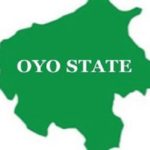The independence of Mauritius’s judiciary recently faced an unexpected broadside from the Number Resource Organization (NRO), the international body set up to coordinate the world’s five Regional Internet Registries (RIRs), the organizations responsible for managing the distribution of IP addresses. In mid-July, the NRO sent a letter to the Foreign Minister and Attorney General of Mauritius in an apparent attempt to affect the outcome of a series of active court cases involving Africa’s RIR (AFRINIC).
The NRO’s extraordinary letter, apparently written at AFRINIC’s request, petitions the Mauritian government to grant AFRINIC international status in an apparent effort to insulate it from further litigation. The attempt to grant AFRINIC special recognition comes in the wake of an avalanche of scandals involving the organization, ranging from accusations of overstepping its mandate, illegally appropriating IP addresses and shady boardroom dealings.
Unsurprisingly, the NRO’s letter has been roundly criticized as an attempt to undermine the separation of powers in Mauritius by encouraging the executive to obstruct the judiciary. Among those quick to come out in opposition to the NRO’s move is a former director of AFRINIC, who has drawn attention to several “inaccurate allegations” contained in the letter and publicly decried it as an attempt to interfere in the long-established legal processes of a sovereign nation.
Fortunately, the government of Mauritius is unlikely to be swayed by the NRO’s attempts at interference. Indeed, the country commands a reputation as an exception among the many autocracies that govern in Africa, with its longstanding democratic traditions earning it high rankings in several global rankings for democracy, transparency, and good governance. Despite recent concerns of backsliding, Mauritius’s strong democracy, together with robust finances and a rosy economic outlook, is likely to bring the island further prosperity in the future.
Are backsliding concerns overblown?
As well as being renowned for its white sandy beaches and year-round tropical weather, the small island nation of Mauritius is often celebrated for its impeccable democratic credentials. According to the 2021 Democratic Index compiled by the Economist Intelligence Unit, Mauritius is the only “full democracy” in Africa– and one of only 21 worldwide. The country also scored a very healthy 8.17 on the BTI Transformation Index for 2022, putting it in a supremely respectable 12th position out of 137 nations across the globe.
Having said that, there have been questioning marks over Mauritian progress and performance in democratic terms of late. The 2019 general election was marred by allegations of media manipulation, and opposition oppression and thousands of the electorate were prevented from casting their vote.
Those rumours have inspired a worrying decline in public trust; although almost two-thirds of the population was confident in the legitimacy of the electoral process in 2019, that figure is a sizable step down from 90% in 2010. Meanwhile, over a third of Mauritians believe the country is now facing major institutional problems.
ALSO READ: My scariest moment was when I ran out of water in Mauritania —Adeyanju, London-to-Lagos biker
Numerous international organizations, however, continue to have confidence in the strength of Mauritian institutions. The country has claimed the top spot in the Ibrahim Index of African Governance for the 10th year running, recording a full four percentage points more than the nearest competitor. Meanwhile, the success of its Covid-19 vaccination drive (76% of the populace had received at least two doses in February of this year, compared to just 13% across the entire continent) is tangible proof of the government’s competency.
Mauritius aims high economically
Not content to rest on their laurels, however, those in charge have outlined ambitious plans to take the country to the next level economically and infrastructurally. This week, the finance minister set an ambitious target of 7% growth in 2022, with a number of initiatives already in place to help achieve this objective. Alongside impressive short-term growth projections, Prime Minister Pravind Jugnauth started laying the foundations for a long-term strategy back in 2018, which will see the country progressively to transition to a high-wage economy.
For example, $5 billion was poured into infrastructural improvements over the next five years, with the Metro Express connecting the capital to other urban epicentres and the expansion of the capacities of both Port Louis and the country’s international airport chief among them. The Marshall Plan introduced a minimum wage and boosted pension earnings in a bid to combat poverty, while a further $60 million was set aside to tackle environmental improvements.
As for the tourism sector – which makes up 8% of Mauritian GDP and was hit hard by the pandemic – the government is aiming to usher in one million visitors in 2022. To do so, it’s diversifying from its largest European market to Asian, African and Middle Eastern patrons. Despite the decline in public trust in recent years, Mauritius has the credentials and track record to overcome such obstacles. Ignoring the NRO’s extraordinary request and sticking by its own convictions and conventions will serve to cement that confidence at home and abroad even further.
WATCH TOP VIDEOS FROM NIGERIAN TRIBUNE TV
- Let’s Talk About SELF-AWARENESS
- Is Your Confidence Mistaken for Pride? Let’s talk about it
- Is Etiquette About Perfection…Or Just Not Being Rude?
- Top Psychologist Reveal 3 Signs You’re Struggling With Imposter Syndrome
- Do You Pick Up Work-Related Calls at Midnight or Never? Let’s Talk About Boundaries







